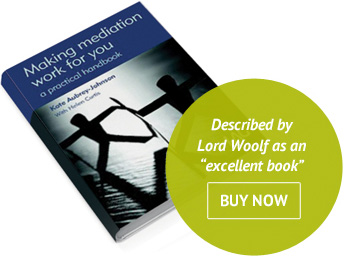Agree to Mediate
Mediation requires parties to a dispute to voluntarily choose to participate in mediation. This may sound obvious but one party must either voice the option of mediation or respond positively to another party’s suggestion to mediate.
Once the parties agree to mediate, they then need to decide on a mediator, a date and a venue. This can bring the parties swiftly to mediation, particularly where the stay on legal proceedings granted by the court is about to expire, or can lead to further discussions about key aspects of the mediation.
Preparation
Once the parties have agreed the mediator and details of the mediation, they will prepare an agreed mediation bundle. This will contain documents which the parties feel the mediator must see before the mediation. This is not a trial bundle and contains only what the parties consider to be the essential documents. In addition, each party will be invited to provide a position statement which is exchanged before the mediation as part of the preparation. More information can be found here. The position statement ought to briefly summarise the issues and the impact as well as the range or type of outcome which is sought. Each party, if they wish, may provide separate information to the mediator only which is not disclosed to the other party.
Process
Each mediation is different and the mediator can use the flexibility of the mediation process to meet the parties’ needs. At the current time, the general approach of each party assembling in their own room before the mediation still takes place but in a virtual rather than physical space. The mediator will see each party it their assigned room where lawyers, supporters and clients can connect in confidence. The mediator can check who is present and whether there are any additional concerns. The parties can then be connected by the mediator for a joint session where that would be helpful followed by a series of private sessions when the mediator will work with the parties to explore where the solution may lie. Once agreement is reached, it is put into writing and when signed by or on behalf of the parties and becomes legally enforceable.

